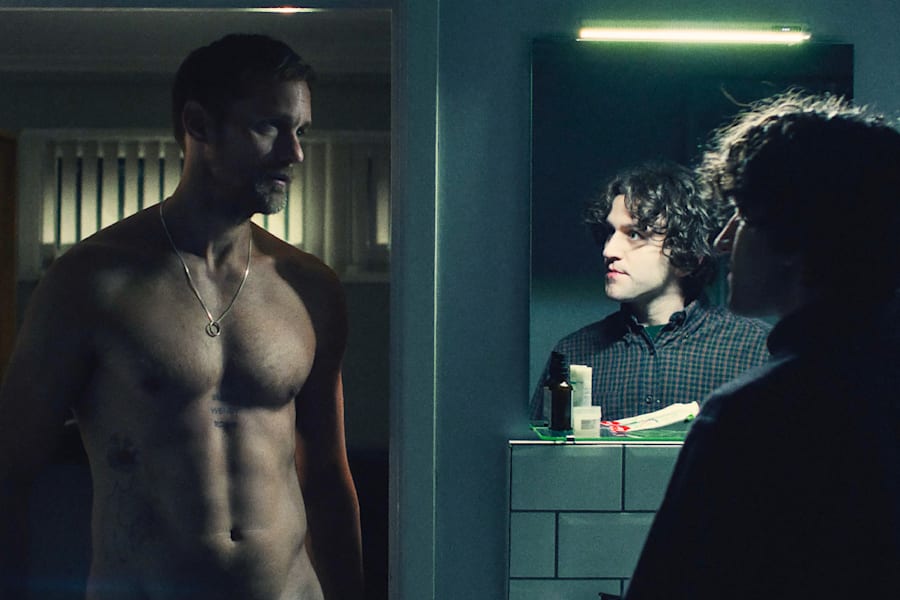
“If only I had their job, their house, their finances…”
Let’s be honest: most of us have found ourselves gazing green-eyed at another person at some point, thinking that if we had something they’ve got, our life would improve. Maybe your colleague is always on enviable holidays, or you’ve got a friend who always seems to ace job interviews with a confidence you wish you could emulate.
It’s one thing if these things spur you on to make changes in your own life. But if you find yourself feeling resentful and down on yourself, you might have a case of grass is greener syndrome. Named after the old adage “the grass is greener on the other side,” grass is greener syndrome is characterized by a persistent feeling that your present circumstances aren’t good enough, and that you’re missing out on something “better.”
We’re not talking about a genuine realization that you want to improve something about your life and taking steps to do that. Someone with grass is greener syndrome will dwell on the perceived problem to the point that it causes anxiety and feelings of low self-esteem, rather than taking any action.
Grass is greener syndrome can apply to romantic relationships, too. Read on as we take a look at why it happens and how it affects relationships, from constant comparisons to commitment issues and general dissatisfaction. We’ll also highlight some techniques to overcome a negative mindset.
What is grass is greener syndrome in dating?
Idly wondering what it might be like to date a different person or finding other people attractive when you’re in a relationship is normal, as dating therapist Jeff Guenther says. After all, the human propensity to be attracted to others doesn’t magically disappear just because you’re happily partnered. But if you’re constantly thinking that someone else—anyone else—might be a better partner, or meet a need you feel your current partner doesn’t, to the point that it’s causing you anxiety and stopping you enjoying the good things about your relationship, it might be grass is greener syndrome.
According to behavioral economist Dan Ariely, grass is greener syndrome can develop as you get to know someone better. In the talking stage, everything feels new and exciting, but as things develop, you start to see their small flaws and weaknesses. A grass is greener thinker may then romanticize the idea of a partner without these things. The truth, though, is that everyone has flaws. You might be convinced that their current partner’s flaws are the problem, and that a different person—or being single—is the answer to their woes. But they’d soon find new problems to fixate on, and the cycle would start again.
Signs someone may be experiencing grass is greener syndrome
Just to be clear: we’re not advocating staying in a relationship you have serious doubts about—that’s not what grass is greener syndrome is. Rather than being indicative of genuine issues, grass is greener syndrome usually stems from low self-esteem and causes “cognitive distortion”—a distorted idea of reality. The grass is greener thinker focuses so hard on small issues in the relationship that they lose sight of everything that’s good about it.
So, what does it feel like?
- Making negative comparisons: Comparing your partner to someone else—often an imaginary alternative partner—that you think would be a better match for you.
- Focusing on your partner’s flaws.
- Frequently complaining about, or thinking negatively about, your partner.
- Reluctance to make a commitment, like putting a label on the relationship or moving in together, in case you “miss out” on someone better.
- Inability to compromise: a feeling that one small issue overshadows the whole relationship.
- Feeling any of the above despite the relationship generally being good.

Why grass is greener syndrome happens in dating
Modern life—and dating in particular—seems to be full of infinite choice, in part thanks to the proliferation of dating apps (yes, like Feeld). A literature review of studies on the impact of dating app use aimed to highlight ways apps have changed the nature of dating, and highlighted one case of users reporting “ambivalence in establishing relationships” and “over-abundance of connections on these apps.” This could lead to the persistent feeling that a better partner is around the corner.
Social media can also give unrealistic depictions of romance—one study of nearly 2,000 adolescents from five countries found Instagram use was related to “internalisation of… romantic ideals”. Feeling that your relationship doesn’t live up to the fairytale could mean you’re reluctant to commit because it doesn’t feel “good enough.” But it’s more than what you see online—it’s also about what (and who) you’ve already experienced. Grass is greener syndrome can take hold when someone finds themselves comparing a current partner to a previous one, or feeling stuck deciding between two people they’re dating. Maybe they chose to stay with someone, but quietly wonder if they should’ve pursued someone else. Or they’re trying to connect with someone new, but keep replaying memories of a past relationship that, in hindsight, seems more exciting, effortless, or emotionally charged.
This kind of comparison can leave you in a confusing headspace—especially when you’re dating multiple people or still figuring things out. Instead of seeing each connection as valid on its own terms, grass is greener thinking turns relationships into a competition, where one person has to “win.” Even in non-monogamous spaces or more open dating styles, people can feel the pressure to pick the “right” person or feel guilty for developing emotional connections with more than one. But relationships aren’t a ranking system. One person doesn’t have to be objectively better—just better for you, right now.
These kinds of internal comparisons can create what some call “decision paralysis,” where the fear of making the wrong choice stops you from committing at all. You might end up stuck in limbo—half-invested in one relationship while low-key fantasising about another, or unable to fully enjoy dating because you're always wondering if someone better is just around the corner.
In some cases, grass is greener thinking is deeper than that—it might be an ingrained mindset as a result of adverse childhood experiences, like parents who frequently told you you weren’t good enough. These developmental and societal factors mean that, fundamentally, grass is greener syndrome stems from a negative perception of yourself, rather than a genuine problem with your relationship. Self-reflection in relationships is important to ensure you’re not self-sabotaging due to underlying issues. Often, we don’t even realise we’re doing this!
Now, we’re not saying to ignore any doubts or concerns you have about your relationship, if you have them. But leaving your relationship to chase something better isn’t always the answer, because it’s likely the grass is greener mindset will rear its head in subsequent relationships if the underlying cause isn’t addressed.
The impact of grass is greener syndrome on dating
As we’ve explained, focusing on the negative doesn’t actually help to solve the problem. Feeling that the grass is greener elsewhere will likely make you feel trapped in a spiral of overthinking. You fixate on the perceived problem, and feelings of dissatisfaction and resentment grow. This makes you focus on the problem even more, and feeds those unpleasant feelings. Some of the effects on your relationship or dating life could be:
- Feeling bored and trapped in your relationship, or unenthused by dating.
- Missing opportunities to connect with your partner.
- Resentment towards your partner, and a negative perception of yourself.
- Feeling paralyzed by your thoughts and unable to make decisions or take action.
- Poor communication with your partner.
Sometimes, those “grass is greener” feelings can become a self-fulfilling cycle—but it’s important to recognise there’s no single reason they come up. While they can be linked to internal doubts or insecurity, they might also stem from unresolved issues in the relationship, mismatched values, timing, or even how the relationship began. In some cases, one or both people may not have been fully ready. Sometimes, the grass is greener—or at least feels that way when change is hard and effort is needed. Whatever the cause, it’s rarely about blame. These feelings are complex, and approaching them with empathy—for yourself and your partner—can make all the difference.
Strategies for overcoming grass is greener syndrome in dating
The first step to freeing yourself from grass is greener syndrome is a mindset change. As we’ve outlined, it’s not a choice, but usually a result of negative self-image. So, the first thing to think about if you’re feeling like the grass is greener elsewhere is how you feel about yourself. If the answer is “not good enough” or something along those lines, start there.
Harley Therapy recommends a few simple practices to help shift your mindset from negative to positive:
- Practise gratitude—Remind yourself of the good things in your life and about yourself. Writing them down daily can help you build a habit of positive thinking.
- Try mindfulness—Being present in the moment helps you step away from unhelpful thoughts. Grass is greener syndrome often means focusing on an idealized version of reality instead of experiencing and appreciating the here and now.
- Notice your thought patterns—When you catch yourself comparing or daydreaming about “better” scenarios, gently bring your attention back to what’s real and working in your life right now.
If you’re not making enough time to really talk to each other and connect, it could make small problems feel bigger, so working on your communication is important. The Gottman Institute advises “creating rituals of connection”—having dates, setting time aside to ask each other questions, and actively working on your emotional connection. Prioritizing and nurturing your relationship will help you focus on its good points.
Of course, this stuff is hard to do alone. Individual or couples therapy can be incredibly helpful to learn about the root cause of a grass is greener mindset, and learn how to communicate healthily.
Ultimately, grass is greener syndrome often reflects inner dissatisfaction rather than a genuine issue within your relationship. This doesn’t mean there’s anything wrong with you—in fact, you may be doing far better than you realize. It’s surprisingly easy to internalize the belief that your relationship isn’t enough, whether that comes from past experiences or the unrealistic portrayals of love we see in the media. Shifting this mindset isn’t always straightforward, but it is possible and speaking to a qualified therapist can help you uncover where those feelings originate.
It may be a cliché, but the grass really does grow where you water it. If you’re curious about navigating desire, non-traditional relationships, or just want to understand your needs better, a world of exploration awaits on Feeld.


